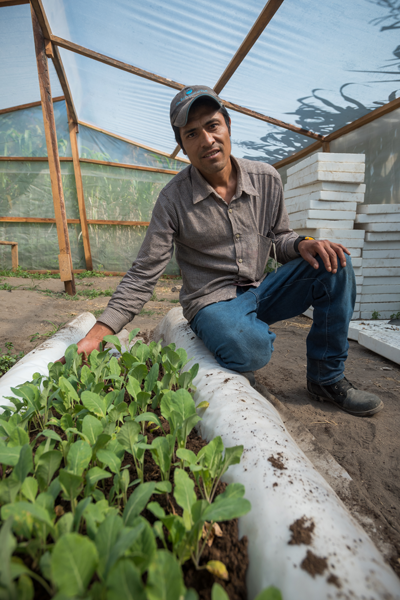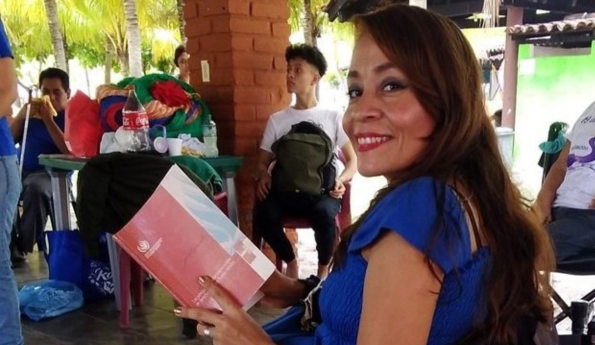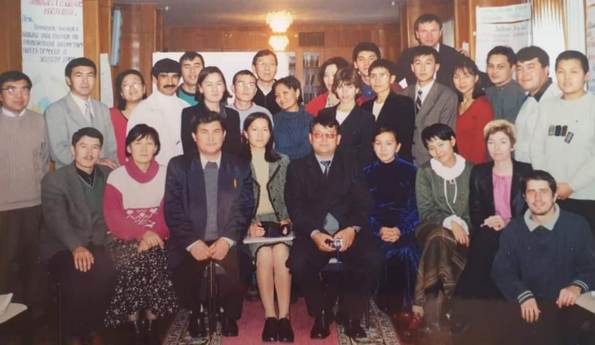by Sevak Amalyan, Program Manager, and Norma Toussaint, Senior Program Officer
As with any other industry, international development is a world of its own. It has its rules, traditions, values, and vocabulary. As international development evolves, so do the trendy terms that compete for popularity among donors and implementers. “Co-creation,” a term mostly associated with the Open Government Partnership – where governments create their action plans in partnership with civil society, academia and other stakeholders – is one of these industry buzzwords that is currently trending in our sector around the world.
At the ICTforAg 2018 conference we attended on June 14, 2018, almost every presenter stressed the importance of co-creation for designing and implementing ICT interventions in the agriculture (ag) sector. In its fourth year, ICTforAg is a one-day conference hosted by FHI360, where ag practitioners, experts, academia, and IT specialists convene to share and learn how they can apply information and communication technology (ICT) in agriculture. This is the place where you can learn how artificial intelligence can detect a disease affecting crops and trigger a precise treatment; how governments are combating the widening gender digital divide; and how precision agriculture through wireless irrigation systems, for example, can help farmers increase crop yields.

As exciting as it is to learn about drones and how blockchain technology is impacting agriculture, one question that always remains unanswered after the event is how do we make these innovative, often pricey, ICT tools and achievements available to a smallholder farmer in rural Guatemala or Senegal who often earns less than $30 a month and can hardly afford a cellphone? Who is supposed to pay for the mobile data or an extension service subscription for a farmer to improve his or her harvesting practices and increase yields that allow them to feed their families and communities much-needed healthy food? Who should pay for the worm-resistant genetically improved seed for the smallholder farmer to plant, or the genetically modified crop that is great at controlling the fall army worm likely to be endemic in Africa in the coming years?
When donor-funded projects that support ICT innovations in agriculture end, the ability to sustain project activities is often achieved through public-private partnerships (another favorite term in international development) where governments, private sector, and international development organizations come together to support the communities in which we work. And the truth is, these partnerships are absolutely necessary. Traditional agricultural practices in developing countries are less than half as productive as those in developed countries. The use of antiquated agriculture inputs and tools means that post-harvest losses are twice as high in low to middle income countries. Without massive and well-orchestrated interventions, the road to self-reliance for smallholder farmers in developing countries will continue to be long and difficult.
As global challenges grow exponentially and external shocks become increasingly complicated, the resources to meet growing needs and demands are dwindling. Here is where co-creation comes into play and becomes a crucial element to guarantee the success and sustainability of projects. At a time when resources are scarce and partnerships are key, each intervention should be designed as a mosaic where every partner provides an irreplaceable piece that only works in combination with other pieces.
A brilliant example of co-creation was presented during ICTforAg by Telenor Pakistan, a mobile provider who, in partnership with the Punjab province government, ag experts, and other donors, delivered 2,500,000 smartphones to smallholder farmers, developed an online platform to provide quality ag extension services and market information to the farmers, and linked farmers with the suppliers of high-quality inputs (like drought resistant seeds, for instance) and tools. The uniqueness of the project is in its financial sustainability, which will allow the implementer to exit in 2-3 years and pass the platform to a third party as a commercially viable initiative.
This project is a success story specifically because the interests of all parties – government, private sector, program implementers, and the communities and farmers – were served throughout the process, from program design through the exit strategy. This type of comprehensive partnership is only possible through co-creation, combined with proper analysis of the existing political economy and stakeholder engagement.
All of this may sound simplistically easy, yet as the practice shows, donors and project implementers alike still struggle with that idea of sustainability and often fail to define a strong exit strategy. Co-creation will not solve all issues, but will likely increase the chances of having a successful, impactful, and sustainable project. As Elsa A. Murano of the Borlaug Institute for International Agriculture remarked during her opening session at ICTforAg this year, “peace cannot be built on empty stomachs or on human misery.” So, as we grapple with challenges ahead and continue to develop innovative ICT tools, co-creation between smallholder farmers, governments, donors, and implementers will get us all closer to sustainability and the journey to self-reliance.
As co-creators of this blog, we should also say: co-creation can also be fun!




